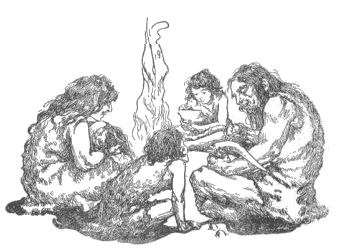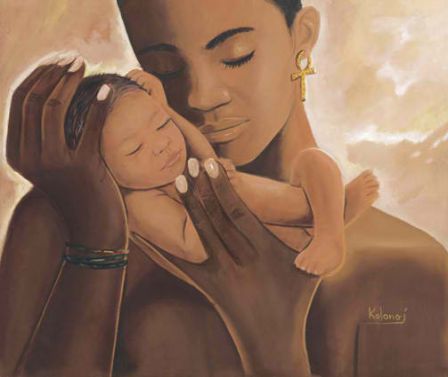I had an interesting discussion about feminism a few days
ago from a very smart lady that happens to be both feminist and Muslim. For
those of you confused about how a woman can be both those things, it is
entirely possible, and more and more women are redefining the way they perceive
their role in modern society. This discussion I was having was way too short
for my liking: it was more of an abstract of the topic from her point of view,
but it got me questioning my own perceptions of gender roles in society. I have
always had a hazy idea of what these roles should entail, and I have always
acknowledged that a lot of my preconceptions in this regard stems from an
immensely patriarchal view. Come to think of it, the society in which I live is
a beautiful blend of cultures and ideologies that have two very strong
commonalities threading through all of them. That is an inexplicable emotional
attachment to the geography of our beautiful city, and an overwhelming
tradition of patriarchy.
She sent me some literature to read through, but I have
chosen to document my views before my education starts, to chronicle my change
of perceptions in all things “girl-power”. Please do not judge me if you find
my views too traditional or too progressive, I always try to take a middle path
where there is no clear winner.
 In terms of equality between men and women, there are two
types that I can differentiate. The one is absolute equality, where men and
women share complete equality in everything; from salaries to child-nurturing
to changing tyres. Then there is relative equality, where both objective and
subjective means are utilised to ascertain equality relative to characteristics
inherent to the respective genders. My view is that patriarchy stems from a
place meant to engender equality at a very relative level, while with modern
advances eliminating the need for traditionally gender-specific duties, the
feminine role has tended more and more towards absolute equality. Let me
explain using an analogy. When we lived in harmony with nature in our mud huts,
the men would go out and hunt for bokkies (the animal kind) so that there could
be food on the fire for his family. He would protect the house against wild
animals and child-molesters. And he would have his wounds tended to by his
partner after a hard day out. The woman would gather berries and tend to the kids,
and kept the clay plates in a condition that was clean enough to ensure the
health of her family. Now this is a case study in relative equality. Men are
generally stronger and more adept at violence, so they naturally gravitate
towards the role of protector and provider. Women are physically suited for
children and tend to be less dominant, so they take up the role of nurturer and
mother. Would it be in the best interest of equality to have expected the woman
to hunt a buffalo and protect her house against a hungry lion? I think the wise
Aristotle said it best: “The worst form of inequality is to try to make unequal
things equal”.
In terms of equality between men and women, there are two
types that I can differentiate. The one is absolute equality, where men and
women share complete equality in everything; from salaries to child-nurturing
to changing tyres. Then there is relative equality, where both objective and
subjective means are utilised to ascertain equality relative to characteristics
inherent to the respective genders. My view is that patriarchy stems from a
place meant to engender equality at a very relative level, while with modern
advances eliminating the need for traditionally gender-specific duties, the
feminine role has tended more and more towards absolute equality. Let me
explain using an analogy. When we lived in harmony with nature in our mud huts,
the men would go out and hunt for bokkies (the animal kind) so that there could
be food on the fire for his family. He would protect the house against wild
animals and child-molesters. And he would have his wounds tended to by his
partner after a hard day out. The woman would gather berries and tend to the kids,
and kept the clay plates in a condition that was clean enough to ensure the
health of her family. Now this is a case study in relative equality. Men are
generally stronger and more adept at violence, so they naturally gravitate
towards the role of protector and provider. Women are physically suited for
children and tend to be less dominant, so they take up the role of nurturer and
mother. Would it be in the best interest of equality to have expected the woman
to hunt a buffalo and protect her house against a hungry lion? I think the wise
Aristotle said it best: “The worst form of inequality is to try to make unequal
things equal”.
That said, however, we do not live in a world where men have
that clear directive of protecting and providing. ADT does the protecting and
providing is now common ground. (By the way, some police stations are themselves
clients of ADT. Worthy of a collective WTF.) Nurturing is left to babysitters
and masseuses, so traditional roles no longer find a comfortable niche within
society. That harmonisation between man and woman has taken on a far more
personal and individual dynamic, such that the workings of these relationships have
become as customised as an app-ridden cellphone.The
social constructs of the past is being dismantled very quickly, and so should
our views on traditional gender roles. That said, I do not believe absolute equality
can be achieved (at least until we all become androgenous beings that procreate
through test tubes), and I suspect most people prefer it that way.
Another element on my views on gender roles is that often,
the nature of the male is not sufficiently understood by the female, and
vice-versa. I can only speak from a male point of view, but I do not think that
women understand the strong natural magnetics that draw men into a certain way
of thinking. It has been scientifically proven that men and women are wired
differently, yet curiously, women expect a certain sophistication of thought,
emotion, and behaviour found in themselves that men oftentimes fail to achieve.
It is often mused about anecdotally, but never really integrated into holistic
perceptions. Women woefully underestimate the power of their femininity over
men. They don’t quite get how magnetic, intoxicating and even hypnotic their
aroma, voice or smile can be. Men have the ability to conceal it, and have generally
progressed enough to keep things socially appropriate, but those primal pangs
are still there. This hidden nature extends far beyond the sexual. Men have
inexplicable urges to dominate, compete, experiment, conquer and claim. Most men have these urges under
control. However, too many do not, and this causes a huge problem.
 In matters of equality, I think these masculine traits are
what caused the need for an uprising of feminism. Abuses of this nature by men
have caused women to become subjugated and abused, and this is unacceptable in
modern times. As far as we have come as a country in the recognition of women’s
rights, the facts on the ground tell a completely different story. South Africa
has one of the highest instances of domestic violence against women in the
world. In terms of employment, women are still under-represented in the
workforce, despite making up the overwhelming majority of single parents with
custody of children; and what is worse, they earn less than men for doing
exactly the same job. The rape, prostitution, slavery and exploitation of our
women by animalistic men still speaks volumes for how far we have to progress
in women’s rights in a suffocatingly patriarchal society. And the saddest thing
of all: most men believe that the fight for women’s rights is a feminist thing
that should be taken up by women only. It is a great irony that feminism is
bound to fail without the direct participation of men. We men need to be taught
to be masters over our own barbarism: women are not property, or tools, or
entertainment.
In matters of equality, I think these masculine traits are
what caused the need for an uprising of feminism. Abuses of this nature by men
have caused women to become subjugated and abused, and this is unacceptable in
modern times. As far as we have come as a country in the recognition of women’s
rights, the facts on the ground tell a completely different story. South Africa
has one of the highest instances of domestic violence against women in the
world. In terms of employment, women are still under-represented in the
workforce, despite making up the overwhelming majority of single parents with
custody of children; and what is worse, they earn less than men for doing
exactly the same job. The rape, prostitution, slavery and exploitation of our
women by animalistic men still speaks volumes for how far we have to progress
in women’s rights in a suffocatingly patriarchal society. And the saddest thing
of all: most men believe that the fight for women’s rights is a feminist thing
that should be taken up by women only. It is a great irony that feminism is
bound to fail without the direct participation of men. We men need to be taught
to be masters over our own barbarism: women are not property, or tools, or
entertainment.
To a large degree, I think the debate about what kind of
equality is most applicable in today’s society is irrelevant. First, we need to
establish SOME kind of equality. As things stand, women are extremely
vulnerable, and men need to stand with them in changing both our legislation
and our cultures to facilitate a safe environment for our women to excel. We
should be marching in the streets, joining feminist movements, and educating
our young girls in an objective critical fashion.
Feminism therefore isn’t really feminism. Feminism is social
evolution. And we all need to be involved.







